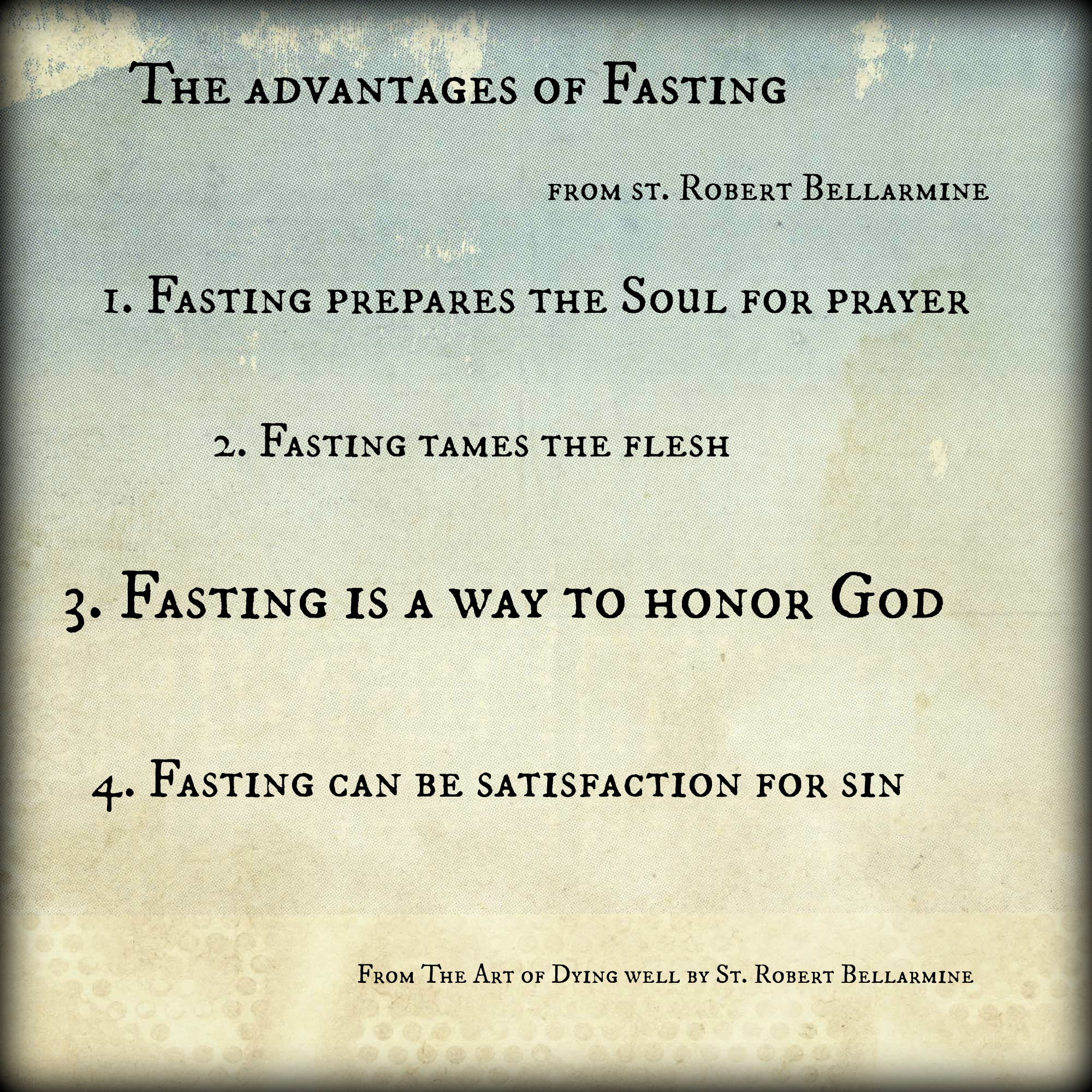(Also a repeat from last year - but it bears repeating...)
Preparing for the Lenten fast? I last posted some thoughts contrasting contemporary paradigms for fasting and the deeper Catholic tradition. No deep thoughts from me today, but just pointing you to St. Robert Bellarmine and his book The Art of Dying Well. (Which, of course, is really about the art of living well.) It's available free online here.
.....
Another advantage is, that we honour God by our fasts, because when we fast for His sake, we honour Him: thus the apostle Paul speaks in his Epistle to the Romans: "I beseech you therefore, brethren, by the mercy of God, that you present your bodies a living sacrifice, holy, pleasing unto God, your reasonable service"(chap, xii.) In the Greek, "reasonable service," is, reasonable worship: and of this worship St. Luke speaks, when mentioning the prophetess Anna: "And she was a widow until fourscore and four years; who departed not from the temple, by fastings and prayers serving night and day." (chap. ii. 37.) The great Council of Nice in the V. Canon, calls the fast of Lent, "a clean and solemn gift, offered by the Church to God." In the same manner doth Tertullian speak in his book on the "Resurrection of the Flesh," where he calls dry, unsavoury food taken late, "sacrifices pleasing to God:" and St. Leo, in his second sermon on fasting saith, "For the sure reception of all its fruits, the sacrifice of abstinence is most worthily offered to God, the giver of them all."
A fourth advantage fasting hath, is being a satisfaction for sin. Many examples in holy Writ prove this. The Ninivites appeased God by fasting, as Jonas testifies. The Jews did the same; for by fasting with Samuel they appeased God, and gained the victory over their enemies. The wicked king Achab, by fasting and sackcloth, partly satisfied God. In the times of Judith and Esther, the Hebrews obtained mercy from God by no other sacrifice than that of fasting, weeping, and mourning.
How to go about it? His thoughts:
The chief end of fasting, is the mortification of the flesh, that the spirit may be more strengthened. For this purpose, we must use only spare and unsavoury diet. And this our mother the Church points out since she commands us to take only one "full" meal in the day, and then not to eat flesh or white meats, hut only herbs or fruit.
This, Tertullian expresses by two words, in his book on the "Resurrection of the Flesh," where he calls the food of those that fast, "late and dry meats." Now, those do not certainly observe this, who, on their fasting-days, eat as much in one meal, as they do on other days, at their dinner and supper together: and who, at that one meal, prepare so many dishes of different fishes and other things to please their palate, that it seems to be a dinner intended, not for weepers and fasters, but for a nuptial banquet that is to continue throughout most of the night! Those who fast thus, do not certainly derive the least fruit from their fasting.
Nor do those derive any fruit who, although they may eat more moderately, yet on fasting-days do not abstain from games, parties, quarrels, dissensions, lascivious songs, and immoderate laughter; and what is still worse, commit the same crimes as they would on ordinary days. ....They also spent that time which ought to have been devoted to prayer, in profane quarrels, and even in contentions. In fine, so far were they from attending to spiritual things, as they ought to have done on the fasting-days, they added sin to sin, and impiously attacked their neighbours. These and other such sins ought those pious people to avoid, who wish their fasting to be pleasing unto God, and useful to themselves: they may then hope to live well, and die a holy death.
